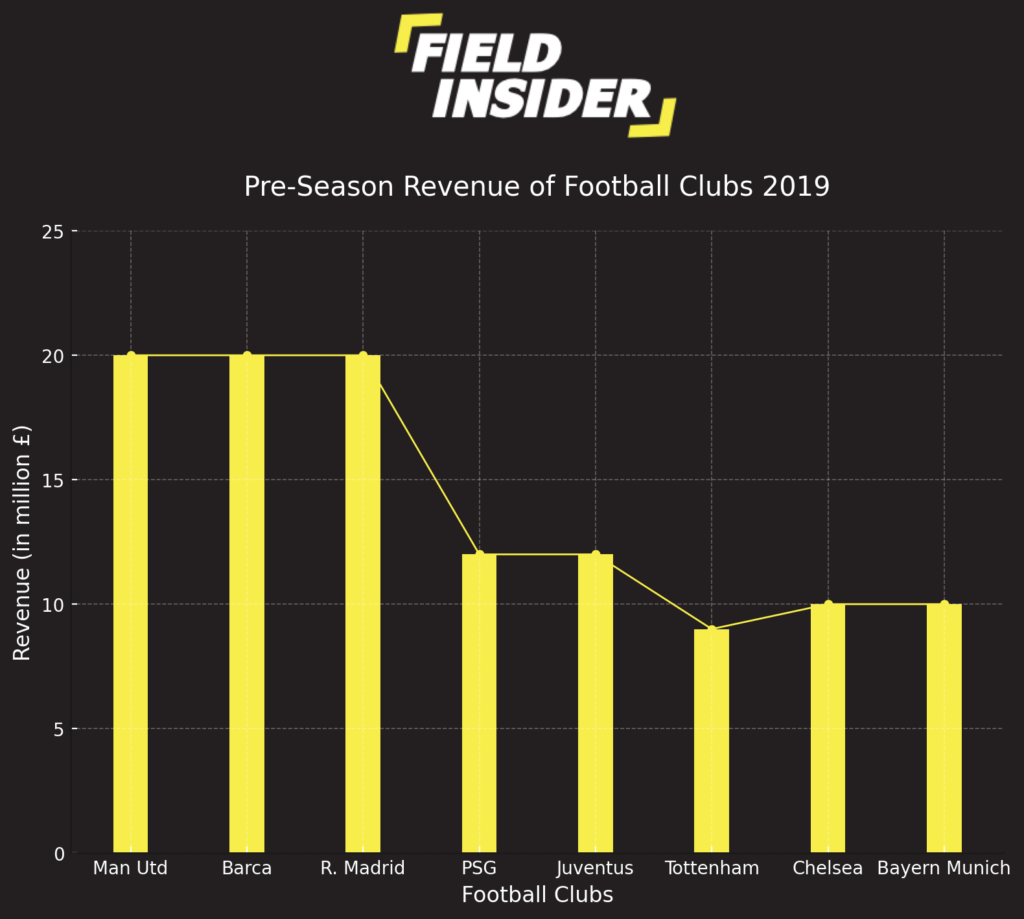What is Pre-Season In Football (Soccer)? Full Guide
Pre-season in football involves various activities and training that players undertake before the official season begins. It’s important to differentiate this from the offseason, a period typically reserved for holidays when players take a break from training and official team activities.
Football, or soccer as it’s known in many parts of the world, is more than just a 90-minute game. The foundations for success are often laid during the crucial pre-season period.
Key Takeaways
| Aspect | Details |
|---|---|
| Pre-Season Defined | A critical period for team preparation and strategy development. |
| Training Camps | Central to physical and tactical preparations, with renowned camps shaping teams. |
| Friendly Matches and Tournaments | Test the team’s readiness and cohesion. |
| Tactical and Strategic Work | Coaches use this time to refine formations and game plans. |
| Player Assessments | Key to determining the squad for the upcoming season. |
| Injury Management | A vital aspect, ensuring players’ fitness and recovery. |
| Pre-Season Competitions | Offer real-world match scenarios to test team mettle. |
| First-Person Perspectives | Insights from those who experience it firsthand. |
What is Pre-Season?
Pre-season in football is a designated period before the start of the official season where teams engage in various activities aimed at physical conditioning, tactical planning, and team building.
It has evolved significantly, mirroring the changes in modern football, with an increased emphasis on scientific approaches to fitness and strategy.

Key Elements of Pre-Season
A. Training Camps
Training camps are pivotal for pre-season success. They offer an environment for intensive physical training, team bonding, and tactical workshops. Clubs often visit famous training camps worldwide to benefit from specialized facilities and a change of scenery.
B. Friendlies and Tournaments
Pre-season is incomplete without friendly matches and tournaments. They serve as practical tests for new strategies and player fitness levels. These games provide a glimpse into how teams might perform in the upcoming season.
C. Fitness and Conditioning
A major focus of pre-season is on players’ fitness. Teams employ specialized training programs to enhance endurance, strength, and agility, crucial for a demanding season ahead.
Tactics and Strategy
Pre-season in football is a golden opportunity for coaches and technical staff to fine-tune their tactics and strategies. This period is crucial for experimenting with different football formations and game plans to find the perfect fit for the team’s style and the players’ strengths.
A. The Art of Tactical Preparation
During pre-season, coaches often explore various formations, such as the popular 4-3-3 formation, known for its balance and flexibility, or the 3-4-3 formation, which offers more width and attacking options.
These formations are not just chosen randomly; they are carefully selected based on the players’ individual skills, the team’s overall strengths and weaknesses, and the specific challenges they anticipate in the upcoming season.
B. Experimenting with Formations
Experimentation with formations like 4-4-2, 4-3-1-2, or even more innovative setups like 5-2-3 is common in pre-season. Each formation has its unique advantages and challenges, and pre-season matches provide the perfect low-stakes environment to test their effectiveness.
Adjustments and refinements are made based on performance in these games, ensuring the team is well-prepared for a variety of scenarios they may face during the competitive season.
C. Analyzing Opposition and Developing Game Plans
Pre-season is also an ideal time for team analysis, where coaches and analysts study potential opponents to develop targeted strategies.
By understanding the strengths, weaknesses, and typical game plans of their rivals, teams can devise counter-strategies, ensuring they are not caught off guard during crucial matches.
D. The Role of Sports Technology and Data Analysis
Modern football heavily relies on technology and data analysis. Teams utilize advanced software to analyze training sessions and friendly matches, gaining insights into player performance, tactical efficiency, and even opposition tendencies.
This data-driven approach allows for more informed decisions regarding formation, player selection, and tactical adjustments.
E. Incorporating Player Feedback
A key aspect often overlooked is the inclusion of player feedback in tactical planning. Players offer valuable insights based on their experiences on the pitch, which can lead to adjustments in strategy or player roles.
This collaborative approach ensures that the team’s tactics are not just theoretically sound but also practically viable and embraced by the players.
F. Preparing for the Long Haul
Finally, tactics and strategy during pre-season are not just about immediate success. Coaches plan for the long season ahead, considering factors like player fatigue, potential injuries, and the need for tactical versatility. This foresight is crucial for maintaining a competitive edge throughout the season.
Player Assessments and Squad Selection
The pre-season period in football is a critical time for player assessments and squad selection, a process that can shape the success of a team’s entire season.
Coaches and technical staff meticulously evaluate each player’s performance, fitness, and tactical suitability to make informed decisions about the squad composition.

A. Rigorous Player Evaluation
Player assessments during pre-season are comprehensive, going beyond just physical fitness. Coaches look at players’ technical skills, understanding of the game, and adaptability to different football formations and styles of play.
B. Young Talent and New Signings
Pre-season is also a platform for young, emerging players to prove their worth. It provides an opportunity for talents from the youth academy or new signings to blend with the team and showcase their skills.
Coaches often face the challenging task of balancing experienced players with promising new talent, a decision that can significantly impact the team’s dynamism and depth.
C. The Importance of Trials and Testing
Trials and testing during pre-season are not just about physical endurance. Tactical understanding, mental resilience, and team chemistry are equally scrutinized.
Coaches use various drills and exercises to evaluate players in different scenarios, ensuring that only the best and most suitable make it to the final squad.
D. Balancing the Squad
A key aspect of squad selection is ensuring a balanced team. This involves having the right mix of defenders, midfielders, attackers, and goalkeepers, each capable of playing in different systems, whether it’s a defensive 5-4-1 formation or an attacking 3-3-4 formation.
Coaches also consider players’ versatility, as those who can perform in multiple roles offer valuable flexibility during the long season.
E. Dealing with Transfers and Contracts
Player assessments are also influenced by transfer market dynamics. The pre-season period often coincides with the transfer window, making it a strategic time for clubs to negotiate contracts, scout for potential signings, or decide on loaning out players.
The management of football contracts is a crucial part of shaping the team’s composition and maintaining a healthy salary balance.
F. Impact on Team Morale and Expectations
Finally, the decisions made during pre-season regarding player assessments and squad selection have a significant impact on team morale and the expectations for the season.
Players who make the cut are expected to uphold the team’s objectives, while those who don’t can impact the overall team dynamics.
What if a Player Misses Pre-Season?
If a player loses pre-season, he has to jump straight into the high-intensity world of the regular season. This can make the individual susceptible to injuries as the body is not prepared to handle such stress.
Usually, if a player misses pre-season, coaches tend to simulate the sort of environment that a pre-season may provide and try to ease the player into action.
Players these days are worth millions, and every single step is vital in keeping them fit. So a pre-season or something resembling it is critical to keep players fit and performing at their highest level.
Injuries and Recovery
Injuries and their management are pivotal components of pre-season in football. This period is not just about pushing athletes to their limits, but also about ensuring their well-being and readiness for the season ahead.
A. The Prevalence of Pre-Season Injuries
Pre-season training can be intense, increasing the risk of injuries. As players return from their off-season break, their bodies need to readjust to the high demands of professional training.
During this phase, muscle strains, ligament injuries, and fatigue-related issues are common. Recognizing these risks, coaches and medical teams work closely to monitor players’ fitness levels and adjust training loads accordingly.
B. Injury Prevention Strategies
Injury prevention is a critical aspect of pre-season preparations. This involves implementing tailored fitness programs that focus on physical conditioning and injury prevention exercises.
Teams also leverage sports science and technology to monitor players’ workload and recovery, ensuring they are not overexerted. Strategies like proper warm-ups, cool-downs, and nutrition play a significant role in reducing the risk of injuries.
C. Role of Sports Medicine and Rehabilitation
The role of sports medicine professionals is crucial during pre-season. They are responsible for conducting fitness assessments, providing medical care, and overseeing rehabilitation processes for injured players.
Rehabilitation programs are designed to not only address the injury but also to prevent its recurrence, ensuring players return to training in optimal condition.
D. Managing Workload and Recovery
Balancing training workload with adequate recovery is a delicate task during pre-season. Coaches and fitness coaches collaborate to create training schedules that optimize fitness gains while minimizing injury risks.
Recovery protocols, including adequate rest, sleep, hydration, and recovery techniques, are integral to this process.
E. Psychological Aspect of Injury and Recovery
The psychological impact of injuries on players is an often-overlooked aspect of pre-season. Injuries can lead to frustration, anxiety, and a loss of confidence.
Providing psychological support and ensuring a supportive environment for recovery is as important as the physical rehabilitation process. This holistic approach aids in the mental well-being of players, contributing to a quicker and more effective return to play.
F. Long-term Health and Season Planning
Finally, the approach to injuries and recovery in pre-season has long-term implications for players’ health and the team’s performance throughout the season.
Managing minor issues effectively can prevent them from becoming major problems later in the season. Thus, pre-season injury management is a crucial investment in the team’s future success.
Pre-Season Competitions and Tours
Pre-season competitions and tours are integral to football clubs’ preparation and strategy. These events not only provide teams with essential match practice but also offer numerous benefits ranging from financial gains to international brand exposure.
A. The Significance of Pre-Season Tours
Pre-season tours, especially for top football clubs, are about more than just preparing for the upcoming season. They are strategic endeavors that combine sports and marketing objectives.
Teams travel to different countries, participating in friendly matches and tournaments, which helps in expanding their global fanbase and brand presence.
These tours often include popular pre-season tournaments that attract significant spectator and media attention, enhancing the club’s profile and marketability.

B. Financial and Commercial Benefits
From a financial perspective, pre-season tours are attractive. They provide clubs with opportunities to sign new sponsorship deals, sell merchandise, and engage with international sponsors and partners. The financial inflow from these tours can be substantial, contributing significantly to a club’s annual revenue.
C. Testing Team Readiness in Competitive Scenarios
Pre-season competitions offer a platform to test team readiness in scenarios that mimic real competitive matches. Coaches use these games to assess players’ performances, tactics, and build team cohesion.
It’s an opportunity to see how new signings integrate with the team and how young players handle high-pressure situations.
D. Fan Engagement and Community Outreach
These tours also serve as an excellent opportunity for fan engagement. Clubs interact with their international fan base, conduct training sessions open to the public, and engage in community outreach programs.
This direct engagement with fans helps in building a loyal fan base and enhancing the club’s image globally.
E. Players’ Exposure to Diverse Playing Styles
Pre-season tours expose players to different playing styles and conditions. Playing against international teams offers valuable experience, especially for younger players who benefit from the exposure to diverse tactics and football cultures.
This exposure is instrumental in their development and helps in broadening their footballing horizons.
F. Balancing Commercial Interests with Sporting Goals
One of the challenges of pre-season tours is balancing commercial interests with sporting goals. While the financial and marketing benefits are undeniable, ensuring that the sporting objectives of preparation and team building are not compromised is crucial.
Coaches and management must strategically plan these tours to maximize both sporting and commercial outcomes.
How Much Money Do Football Clubs Make During Pre-Season Tours?
The chart below presents the pre-season revenue of selected football clubs for the year 2019, based on their appearance fees.

- Clubs like Manchester United, Barcelona, and Real Madrid are shown with a revenue of £20 million.
- PSG’s revenue is represented at £12 million.
- Juventus and Tottenham are displayed with revenues of £12 million and £9 million, respectively, based on their 3-game appearance fees.
- Chelsea and Bayern Munich are both shown with a revenue of £10 million.
Pre-Season in the First-Person Perspective
Gaining insights from the first-person perspectives of football players and coaches adds a unique and authentic dimension to understanding pre-season preparations. These personal experiences reveal the intensity, challenges, and behind-the-scenes efforts that go into getting ready for a demanding football season.
A. Players’ Experiences
For players, pre-season is a time of intense physical and mental preparation. Their narratives often highlight rigorous training , the excitement of new challenges, and the anxiety of securing a place in the team. Players may share stories about their experiences in training camps.
“Pre-season is not something I like at all. But, we need it because we need to prepare well for a long season.”
Yaya Toure , 2015 via Sky Sports
B. Coaches’ Insights
Coaches, on the other hand, offer a different perspective. Their focus is on building a cohesive team, developing strategies, and making tough decisions regarding squad selection.
“Pre-season is a great opportunity to overload the players with double sessions to give them a superior base of fitness.”
Premier League fitness coach, Michael Watts
They might share their methodologies for assessing player performance, insights into tactical experiments with formations like the 4-3-3 or 4-4-2, and the challenges of integrating new players into the team.
Coaches’ perspectives provide a glimpse into the strategic and psychological aspects of pre-season preparation.
C. The Role of Support Staff
Support staff, including fitness coaches, medical professionals, and sports psychologists, play a crucial role in pre-season. Their first-person accounts can shed light on the importance of injury prevention, player fitness, and mental well-being.
D. The Psychological and Emotional Aspects
Pre-season is not just about physical preparation; it’s also about mental and emotional readiness. First-person accounts can highlight the psychological pressures of competing for a place in the team, the excitement of starting a new season, and the personal goals and aspirations of individuals.
Conclusion
The pre-season in football is much more than a sequence of warm-up exercises; it’s an essential period in a team’s yearly cycle. During this phase, teams focus on laying the foundation for the upcoming season.
This involves not only physical conditioning and building endurance but also integrating tactical innovations and strategies. It’s a time for coaches and players to fine-tune their approach, experiment with formations, and develop team chemistry, setting the stage for the competitive season ahead.








